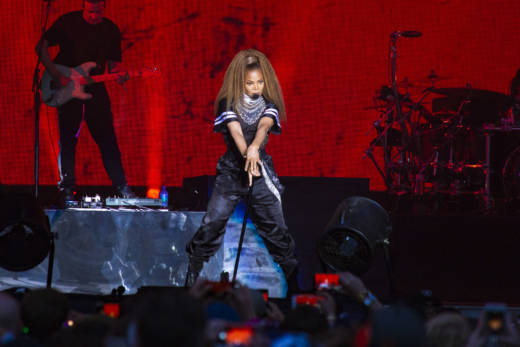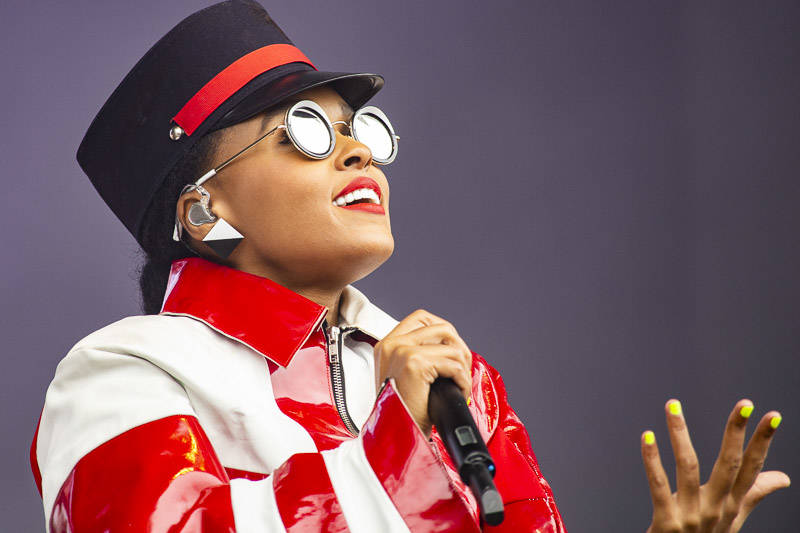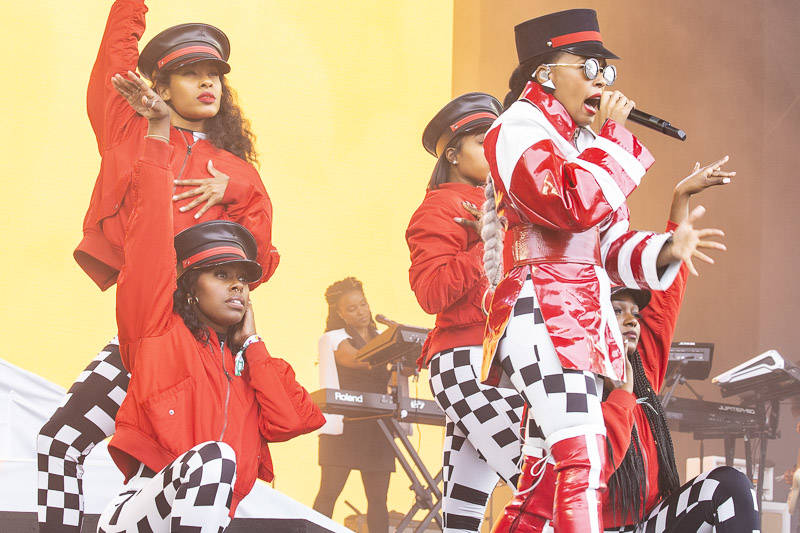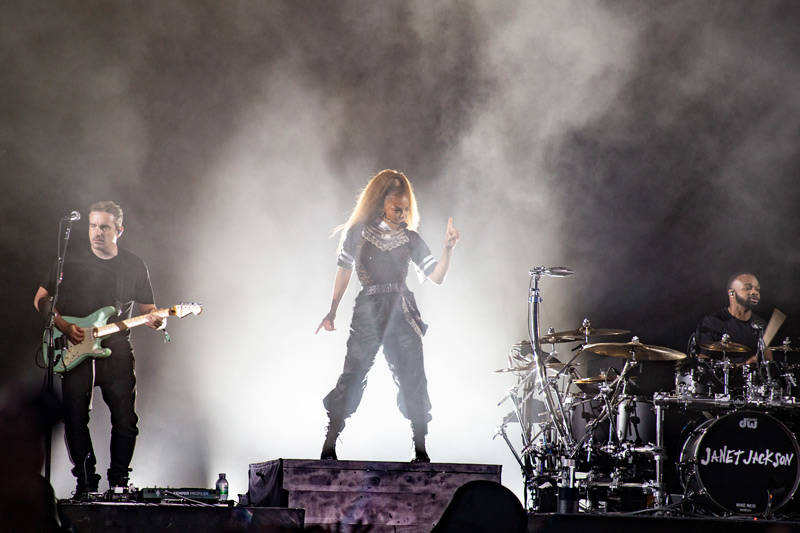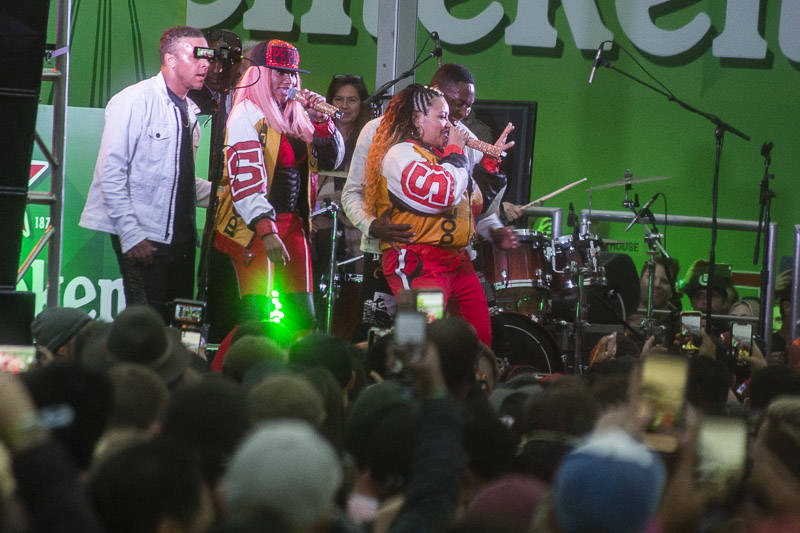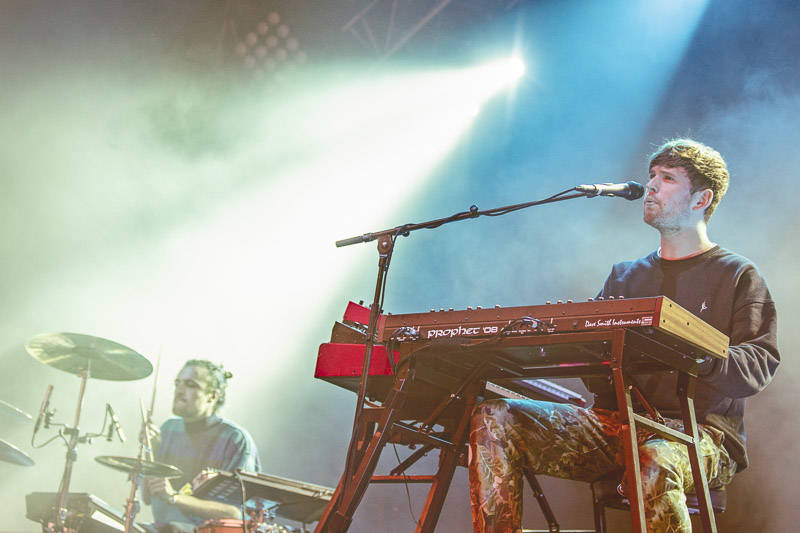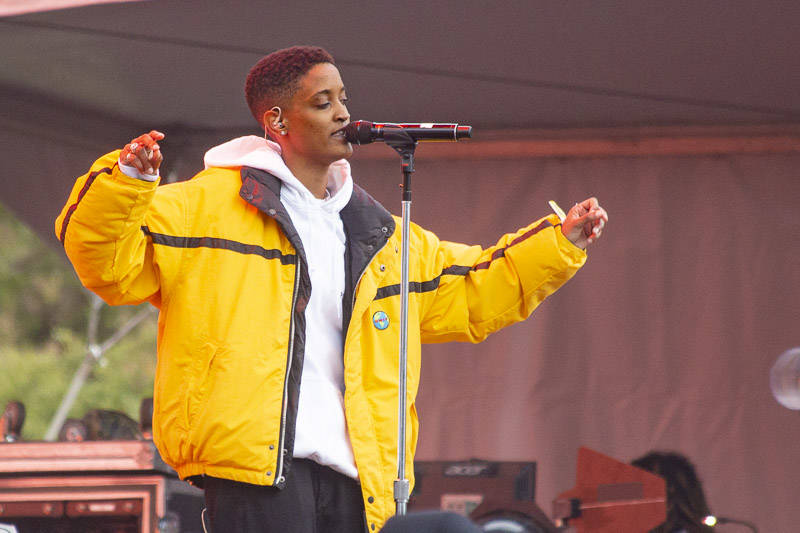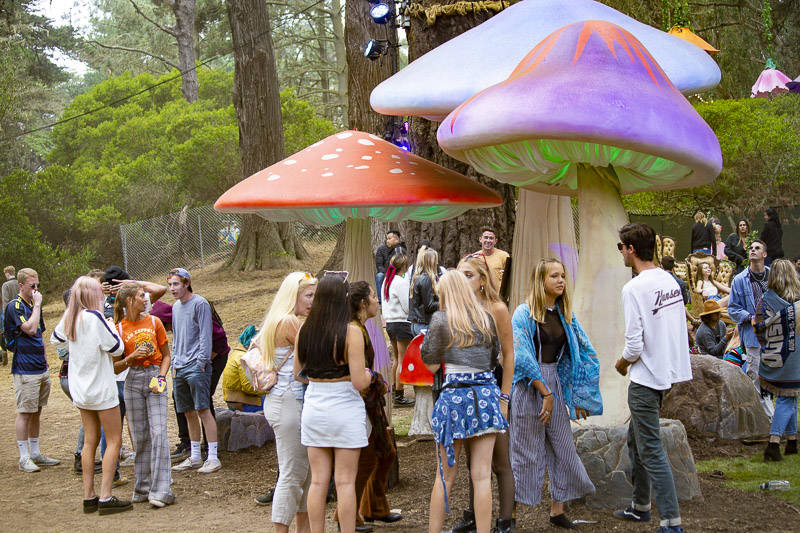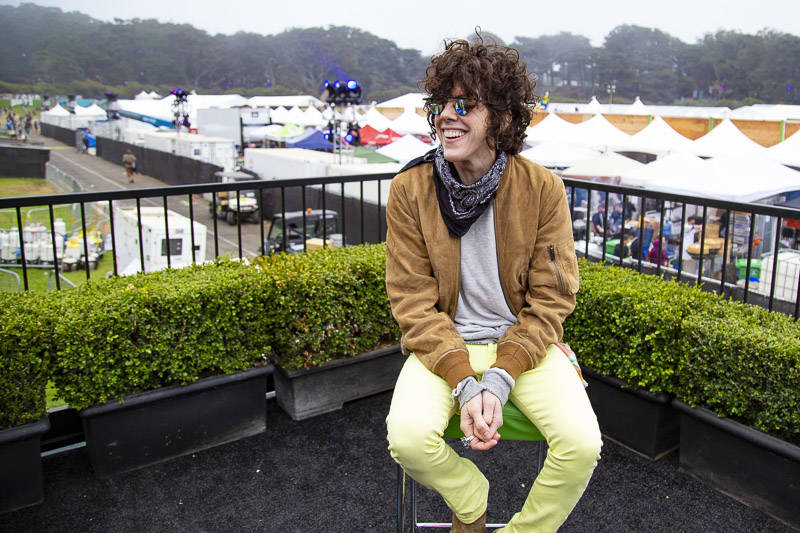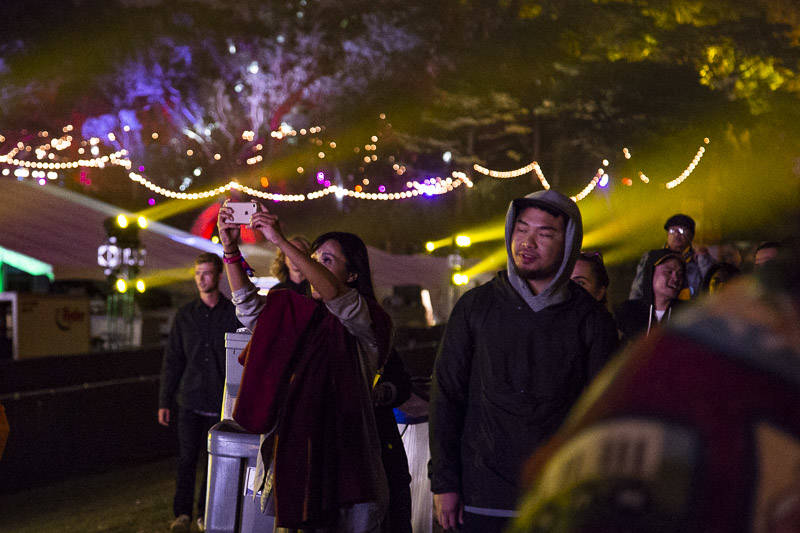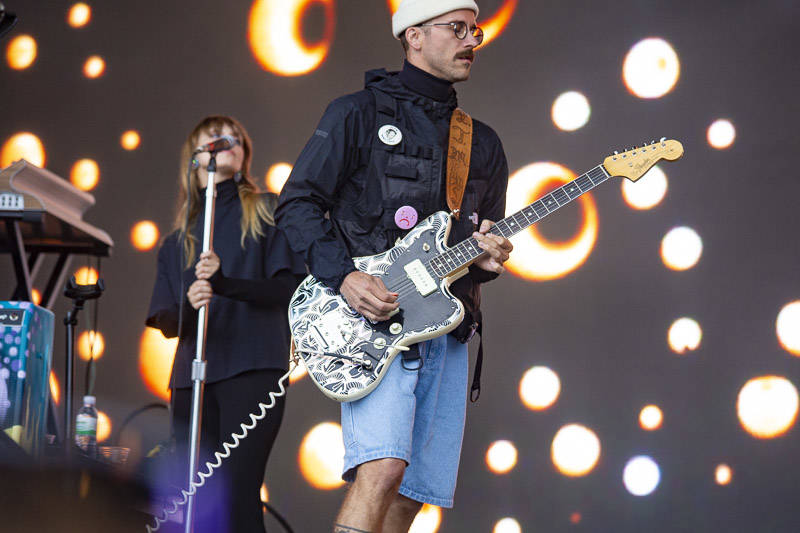With songs speaking out against sexual harassment and domestic violence dating back to the ’80s and ’90s, Janet Jackson was lightyears ahead of the current conversations about gender equality as far as pop stars are concerned. Her headlining set at Outside Lands Sunday night was not only an expertly crafted spectacle, but a powerful, timely statement that vindicated her legacy and reignited her relevance in the current political moment.
As white supremacist “Unite the Right” rallies took place around the country over the weekend, Jackson opened her set with her 1989 song “The Knowledge,” declaring, “Prejudice—no! / Ignorance—no! Bigotry—no!” over a funky breakbeat as a giant Black Power fist flashed onscreen.
Her strong opening statement set the tone for the rest of the show: throughout, Jackson celebrated female sexuality (did you know 1986’s seemingly PG “When I Think of You” is actually about masturbation?) and decried abuses against women through a potent combination of lyrics, choreo and multimedia.
Over the course of the energetic 90-minute performance spanning three decades of hits, Jackson never stopped moving her feet. She channeled rage, vulnerability and sensuality, bringing the audience to giddy, nostalgic highs and plunging them into deep moments of catharsis.
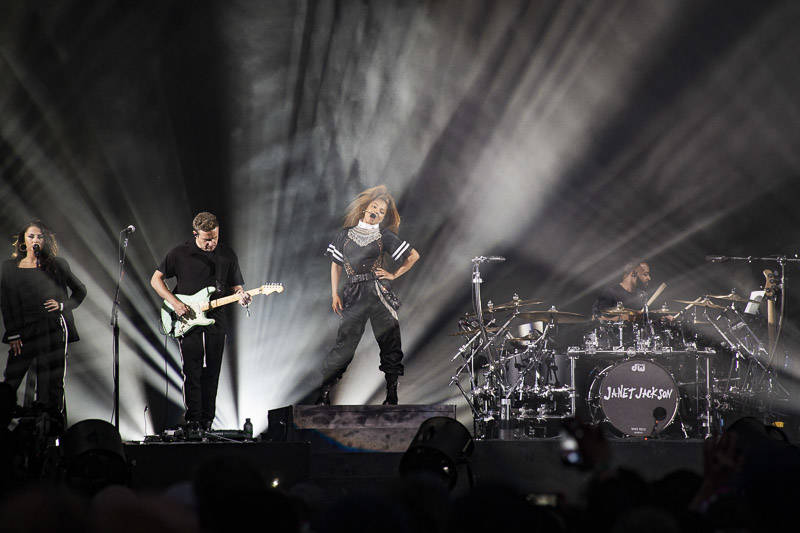
While much of Jackson’s music coats her feminist message in sassiness and humor (“No, my first name ain’t ‘baby’ / It’s Janet / Miss Jackson if you’re nasty,” she sings in 1986’s hip-shaking hit, “Nasty”), her set also occasionally treaded into shocking territory. During Jackson’s performance of “What About,” her angry 1997 ballad about an abusive relationship, a white, male dancer mimed attacking a black, female dancer, even putting his hands on her face. As Jackson sang the chorus (“What about the times you lied to me / What about the times you said no one would want me”), she sat the man in a chair as she danced fiercely behind him, mimicking knocking him to the ground.
